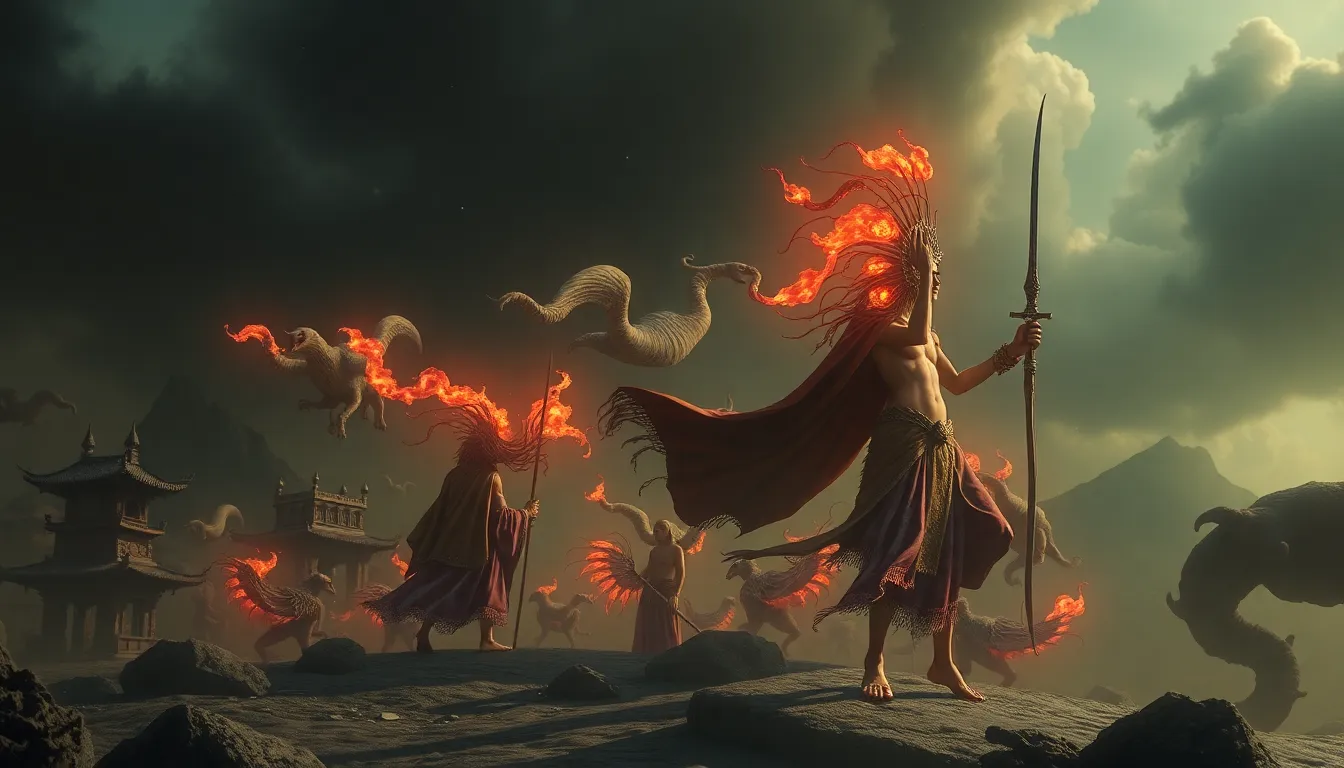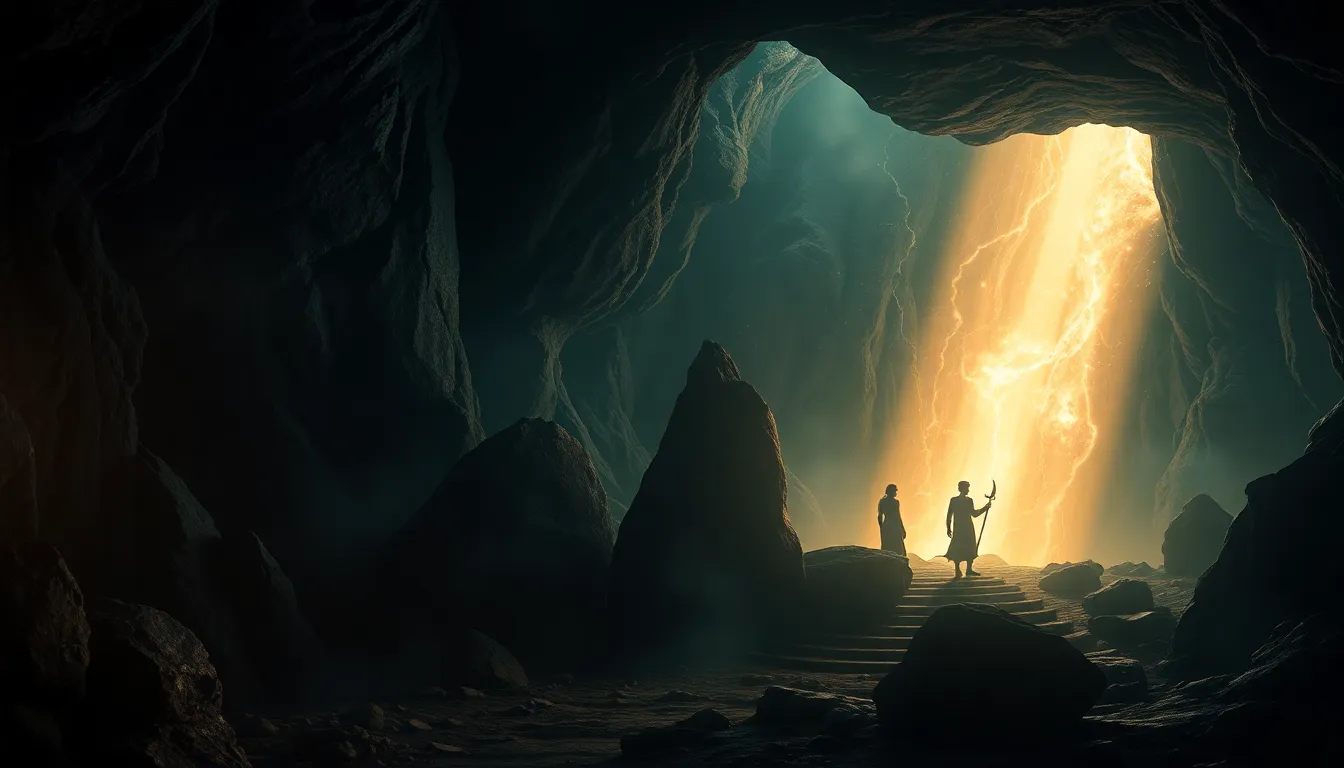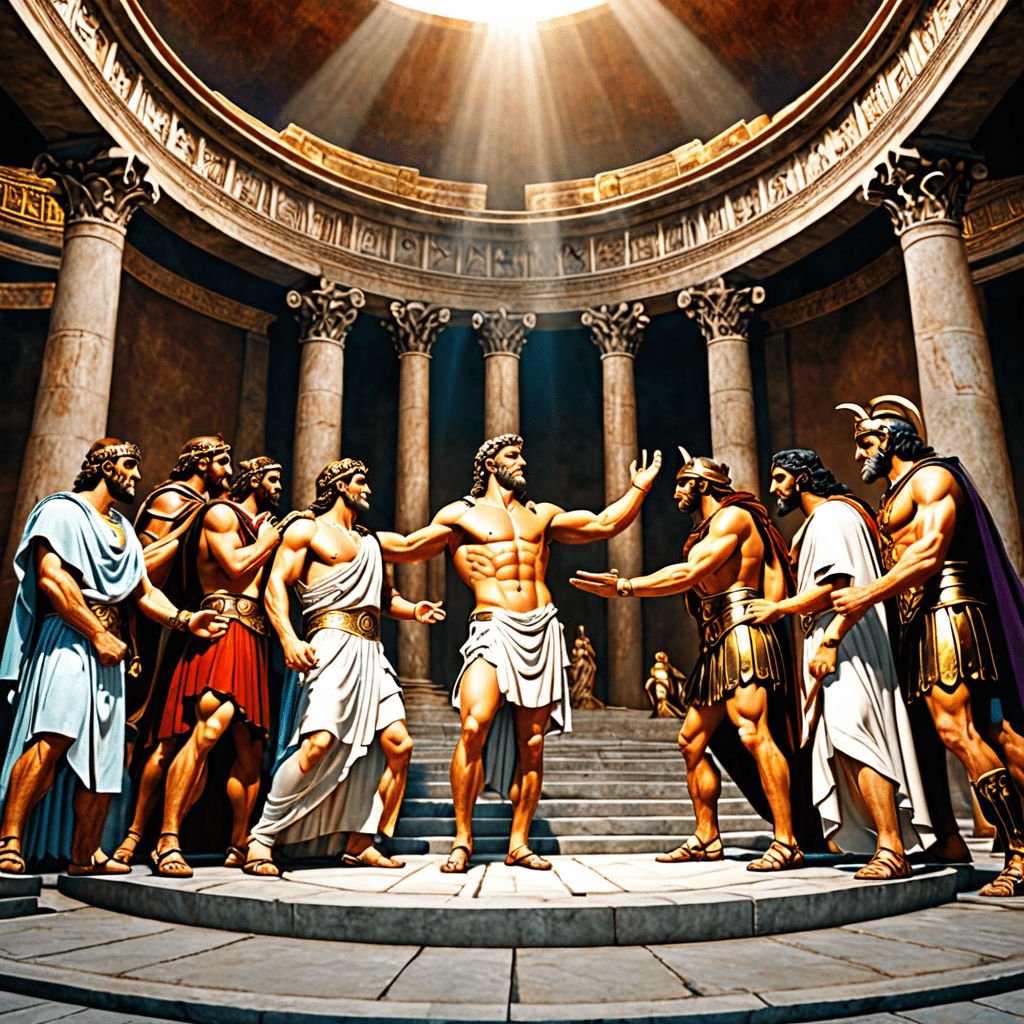Cultural Hero Myths: The Legends That Connect Us
I. Introduction to Cultural Hero Myths
Cultural hero myths are narratives that revolve around individuals who are celebrated for their extraordinary deeds and attributes. These stories often embody the values, beliefs, and ideals of a particular culture or society. They can serve as blueprints for behavior and models of virtue, inspiring generations to strive for greatness.
The importance of hero myths in human society cannot be overstated. They provide a framework through which individuals can understand their place within the larger tapestry of cultural identity. This article aims to explore the multifaceted role of hero myths, examining their impact on cultural identity, their common archetypes, evolutionary trajectory, and their psychological and social implications.
II. The Role of Hero Myths in Cultural Identity
Hero myths are instrumental in shaping the values and beliefs of a culture. They often encapsulate what a society deems important, providing a source of inspiration and moral guidance. For example, hero myths can highlight virtues such as bravery, sacrifice, and integrity.
The impact of hero myths extends beyond personal inspiration; they significantly influence national and cultural identity. They can foster a sense of unity and belonging, as communities rally around shared narratives.
Case studies:
- Beowulf: The Anglo-Saxon epic embodies the values of courage and loyalty.
- Maui: In Polynesian mythology, Maui represents ingenuity and the spirit of adventure.
- King Arthur: A symbol of chivalry and justice in British folklore.
III. Common Archetypes in Hero Myths
Joseph Campbell’s monomyth, often referred to as “The Hero’s Journey,” outlines a common narrative structure found in many cultures. This framework includes stages such as the call to adventure, the crossing of thresholds, and the return home transformed.
Within this structure, various archetypes emerge:
- The Mentor: Guides the hero, providing wisdom and support.
- The Trickster: Challenges the status quo, often leading to transformation.
- The Anti-Hero: A flawed character who ultimately embodies heroic qualities.
Analysis of heroes across cultures reveals how these archetypes manifest differently but serve similar purposes. For instance, the Greek hero Odysseus showcases the cleverness of the trickster, while the Native American figure of Coyote embodies both the trickster and the mentor roles.
IV. The Evolution of Hero Myths Through Time
The historical context of hero myths reveals their origins in ancient civilizations. Myths from the ancient Greeks, Egyptians, and Mesopotamians provided moral frameworks and societal norms.
As societies evolved, so did their hero narratives. Modern society has seen transformations influenced by cultural shifts, wars, and technological advancements.
The influence of technology and media cannot be overlooked. Today, hero myths are disseminated through various platforms—books, films, and social media—allowing them to reach a global audience and adapt to contemporary values.
V. Cultural Variations of Hero Myths
There is a stark contrast between Western and Eastern hero myths. Western narratives often emphasize individualism and personal achievement, as seen in characters like Superman or Harry Potter. In contrast, Eastern myths frequently highlight collectivism and harmony, as illustrated by figures like Sun Wukong from Chinese mythology.
Indigenous hero myths hold profound significance, often rooted in the land and community. They emphasize the relationship between humans and nature, guiding ethical behavior and cultural practices.
Contemporary reinterpretations of hero myths can be seen in various global cultures, where traditional narratives are adapted to reflect modern societal issues, such as gender equality and social justice.
VI. The Psychological Impact of Hero Myths
Psychological theories suggest that hero worship can fulfill deep-seated human needs for validation and identity. By identifying with heroes, individuals can explore their aspirations and values.
Hero myths also play a crucial role in personal and collective trauma healing. They provide narratives that help individuals process experiences and find hope in adversity.
The implications for mental health and well-being are profound, as engaging with hero narratives can foster resilience and promote positive psychological outcomes.
VII. Heroes in Literature and Popular Culture
Hero myths have been explored extensively in classic literature, from Homer’s “The Iliad” to Shakespeare’s “Henry V.” These texts have significantly shaped our understanding of heroism and its complexities.
In modern film and television, heroes are portrayed with increasing nuance. Characters like Katniss Everdeen from “The Hunger Games” and Walter White from “Breaking Bad” challenge traditional notions of heroism.
The rise of anti-heroes reflects a cultural shift towards embracing complexity in character development. This trend prompts audiences to question the morality of heroism itself.
VIII. Critiques and Controversies Surrounding Hero Myths
Glorifying flawed heroes can be dangerous, as it may overshadow their imperfections and lead to unrealistic expectations.
Misrepresentation and cultural appropriation in hero narratives have sparked important conversations about authenticity and respect for diverse cultural traditions.
The role of diversity and inclusion is becoming increasingly critical in modern hero myths. New narratives strive to represent a broader spectrum of identities and experiences, enriching the discourse on heroism.
IX. The Future of Cultural Hero Myths
Globalization is reshaping hero narratives, blending cultural elements and creating new stories that resonate across borders. This phenomenon allows for a richer tapestry of heroism that reflects our interconnected world.
Emerging heroes in contemporary society often arise from social movements and grassroots activism, highlighting the power of collective action.
Technology and social media play a pivotal role in modern myth-making, enabling individuals to share their hero stories and engage with global audiences in real-time.
X. Conclusion: The Enduring Power of Hero Myths
In conclusion, cultural hero myths serve as powerful narratives that connect us across time and space. They shape our values, reflect our identities, and inspire us to aspire towards greatness. While the forms and interpretations of these myths may evolve, their core purpose remains unchanged: to illuminate the human experience and encourage us to be better versions of ourselves.



